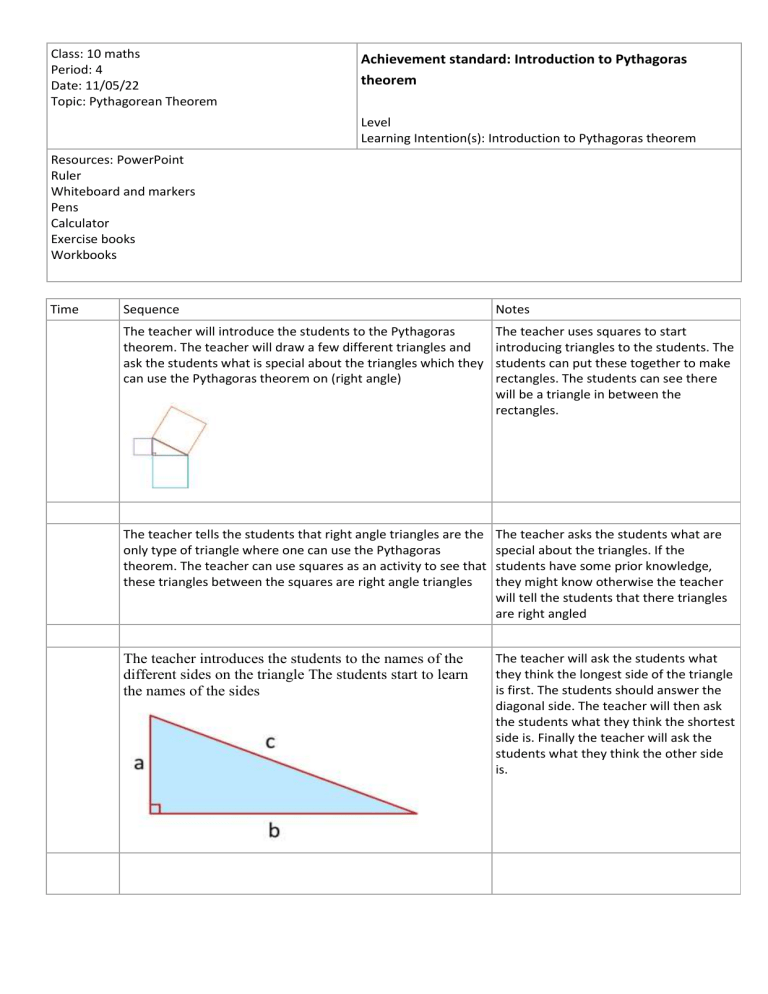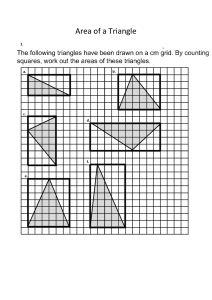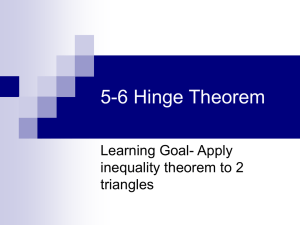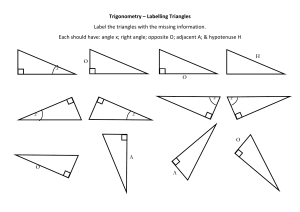
Class: 10 maths Period: 4 Date: 11/05/22 Topic: Pythagorean Theorem Achievement standard: Introduction to Pythagoras theorem Level Learning Intention(s): Introduction to Pythagoras theorem Resources: PowerPoint Ruler Whiteboard and markers Pens Calculator Exercise books Workbooks Time Sequence Notes The teacher will introduce the students to the Pythagoras theorem. The teacher will draw a few different triangles and ask the students what is special about the triangles which they can use the Pythagoras theorem on (right angle) The teacher uses squares to start introducing triangles to the students. The students can put these together to make rectangles. The students can see there will be a triangle in between the rectangles. The teacher tells the students that right angle triangles are the only type of triangle where one can use the Pythagoras theorem. The teacher can use squares as an activity to see that these triangles between the squares are right angle triangles The teacher asks the students what are special about the triangles. If the students have some prior knowledge, they might know otherwise the teacher will tell the students that there triangles are right angled The teacher introduces the students to the names of the different sides on the triangle The students start to learn the names of the sides The teacher will ask the students what they think the longest side of the triangle is first. The students should answer the diagonal side. The teacher will then ask the students what they think the shortest side is. Finally the teacher will ask the students what they think the other side is. The teacher will introduce the theorem of Pythagoras After explaining the lengths of each side, the teacher will start explaining the Pythagoras rule. The rule is that the longest is side the sum of the shortest and middle squared then square rooted The teacher will explain to the students how they will find the The teacher will go through a few length of a side. The teacher will give a few examples find each examples with the students and hope side that they start to understand. Once most of the class understands, the teacher can move on The teacher will ask the students to open their textbooks and do a few example questions. The example questions will be from the workbook or from a worksheet The teacher will give the students questions from the workbook or a worksheet which they can start working on. The teacher will also start helping the students who didn’t understand the first time.


